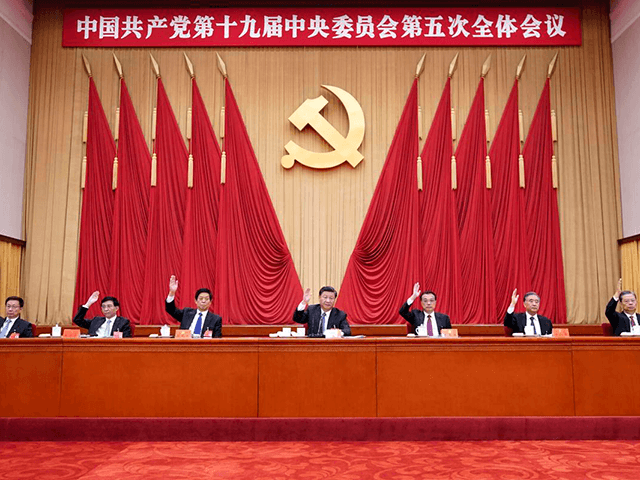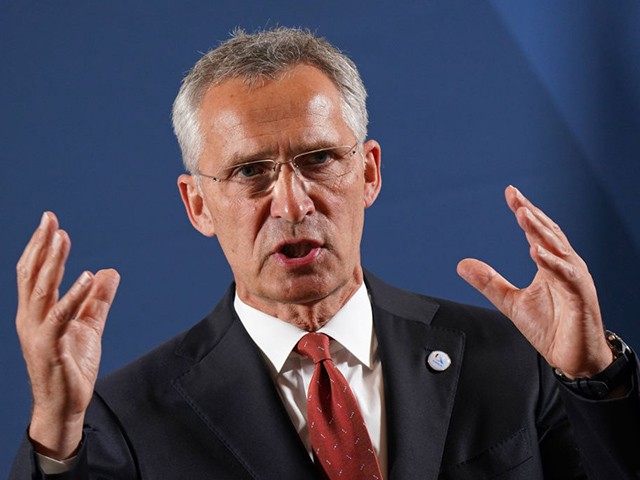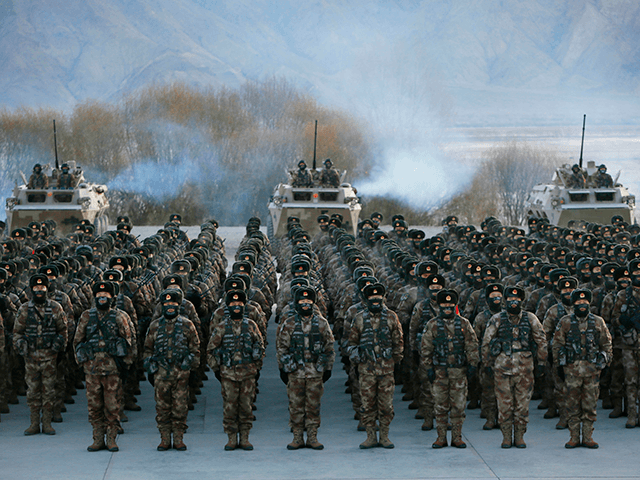Following reports that China conducted a nuclear-capable low-orbit hypersonic missile test in August, Rep. Mike Gallagher (R-WI) warned that the U.S. could lose the “New Cold War” against Beijing, and he is demanding to “aggressively decouple anything associated with the military-civilian fusion” in a statement released Sunday.
According to the statement, the recent test, which reportedly caught U.S. intelligence officials off guard, “should serve as a call to action” lest the U.S. “lose the New Cold War” against China.
“If we stick to our current complacent course—or place our hopes in bankrupt buzzwords like ‘integrated deterrence’—we will lose the New Cold War with Communist China within the decade,” it begins.
Gallagher, who serves as the top Republican on the House Armed Services Committee, then highlighted the current Chinese threat to the U.S.
“The People’s Liberation Army now has an increasingly credible capability to undermine our missile defenses and threaten the American homeland with both conventional and nuclear strikes,” he said.
“Even more disturbing is the fact that American technology has contributed to the PLA’s hypersonic missile program,” he added, in reference to a recent Washington Post report that Chinese hi-tech firm Phytium “uses US-derived technology to power a military supercomputer that models hypersonic flight.”
Gallagher blamed the Biden administration for not applying the Foreign Direct Product Rule that was successfully used to counter Chinese telecom giant Huawei.
“As a result, US-derived technology produced by TSMC still enables Phytium’s malign work,” he said. “This needs to change.”
Calling Phytium “just the beginning,” he lamented that the U.S. government “has long failed to apply maximum pressure against the Chinese Communist Party’s Military-Civil Fusion strategy.”

In this photo released by Xinhua News Agency, Chinese President Xi Jinping, also general secretary of the Communist Party of China (CPC) Central Committee, leads other Chinese leaders attending the fifth plenary session of the 19th Central Committee of the Communist Party of China in Beijing, China on October 29, 2020. (Wang Ye/Xinhua via AP)
“With our homeland now exposed, in part, by advanced technology derived from Military-Civil Fusion, we need to aggressively decouple from anything associated with Military-Civil Fusion,” he added, urging an end to “joint ventures, investments, and research collaborations that involve areas associated with Military-Civil Fusion” as well as an end to “the flow of Wall Street capital into Chinese tech.”
The statement concluded by claiming American entities can either “side with our country, or they can side with the genocidal communist regime that now threatens our cities.”
“They can’t do both,” he added. “It is time to choose.”
The August test – conducted without advance notice, warning, or publication – reportedly stunned analysts who thought the Chinese were much further behind in the orbital arms race.
“We have no idea how they did this,” said one of the Financial Times’ U.S. intelligence sources.
Others described China’s progress as “astounding” and “far more advanced than U.S. officials realized.”
Speaking with the Financial Times on Saturday, NATO Secretary General Jens Stoltenberg said Europe is already seeing China encroaching on its security through its trade policies and cyber capabilities, with long-range missiles posing yet another threat.

Jens Stoltenberg speaks to the media upon his arrival at a meeting of European Union member states defense ministers on August 26, 2020, in Berlin, Germany. (Sean Gallup/Getty Images)
“China is coming closer to us…,” he said.” We see them in the Arctic. We see them in cyber-space. And of course they have more and more high-range weapons that can reach all NATO-allied countries.”
Follow Joshua Klein on Twitter @JoshuaKlein

COMMENTS
Please let us know if you're having issues with commenting.